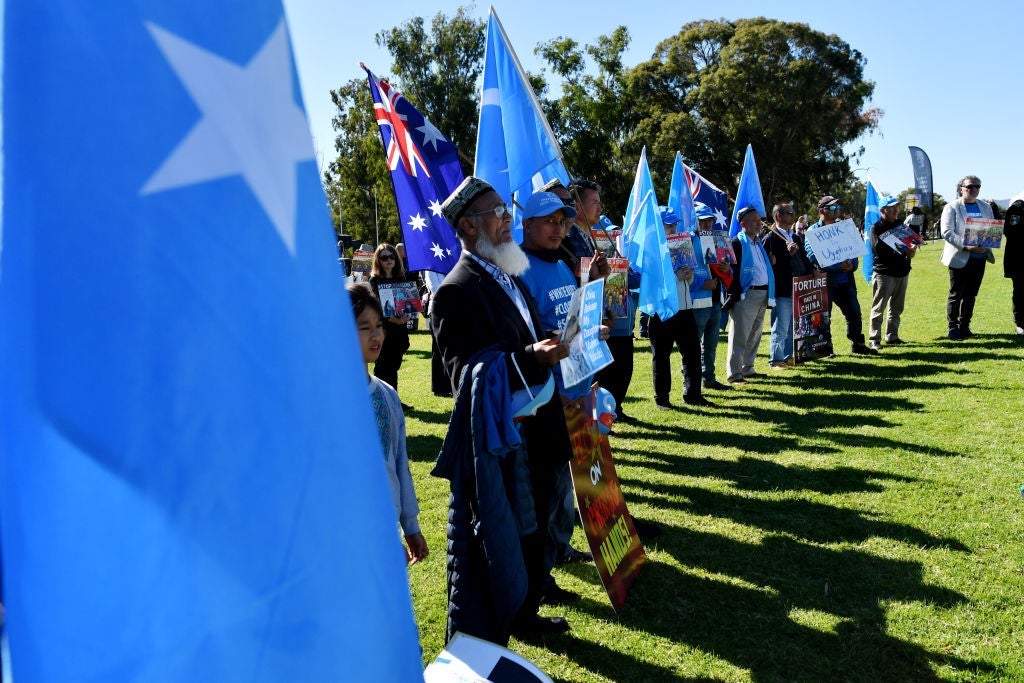

“For quite some time, there has been continuous discrimination in Australia against people of Asian origins, including overseas Chinese,” said a spokesperson from China’s foreign ministry in March. The comment was a response to a recent Lowy Institute survey which found that nearly one in five Chinese-Australians have been physically threatened or attacked during the Covid-19 pandemic.
“[This] poses serious threats to the safety and legitimate rights and interests of Chinese citizens in Australia… We hope that the Australian side will own up to the problem,” the spokesperson added.
Australia has an issue with anti-Chinese racism. This is nothing new, but Covid-19 has fanned the flames. The BBC covered the trend back in mid-2018, while in March The Guardian released an in-depth piece on how anti-China sentiment in Australia has seeped into the mainstream.
The situation is both a reflection and agent in the ongoing crisis of relations between China and Australia. Ties have indeed hit a 50-year low. In late 2020, China (Australia’s main trading partner) imposed an unprecedented number of sanctions on Australian trade. Thirteen sectors were targeted, representing 10% of the country’s exports (or $19bn). Meanwhile, Chinese investment to Australia plummeted 61% in 2020, according to new data from researchers at the Australian National University.
How did things get so bad?
Recent years have witnessed a key and under-reported trend in international relations: governments around the world have significantly increased their scrutiny and control over incoming foreign investment.

US Tariffs are shifting - will you react or anticipate?
Don’t let policy changes catch you off guard. Stay proactive with real-time data and expert analysis.
By GlobalDataThis has been driven, for all intents and purposes, by fear of Chinese investors, and it is the US and Australia that have very much pioneered this policy wave – with Canberra often leading the way.
For example, in early 2019, Australia took the initiative to lobby its Five Eyes partners (an intelligence alliance comprising Australia, Canada, New Zealand, the UK and the US) to exclude China’s Huawei from building its 5G networks in the countries. The Australian government banned Huawei from constructing the country’s national broadband network in 2012 – eight years ahead of the US and the UK. It is worth noting, however, that the decision was heavily influenced by changes to the 60-year-old Australia-New Zealand-US military alliance that saw Washington and Canberra increase their cybersecurity partnership.
This symbiosis was also evident in late 2017, when Canberra released a foreign policy white paper (its first since 2003) that used remarkably similar language to the US National Security Strategy (released a month later). Both criticised China’s repudiation of the rule of law, thereby affirming the Washington-Canberra axis against the ‘growing threat’ of China.
In the years after the Huawei ban, many other major Chinese deals have been barred by Canberra – such as the proposed sale of Australia’s largest landholder, the proposed $600m acquisition of Lion Dairy, and a $300m bid for a major Victorian construction contractor.
It is therefore no surprise that, in 2019, Australia stepped up its foreign investment screening legislation (aimed at China in all but name), following hot on the heels of Donald Trump’s seminal Foreign Investment Risk Review Modernization Act of 2018.
A year later, Australia ramped up its screening mechanisms even more. Like many ‘Western’ countries, Covid-19 increased Canberra’s fear that Chinese investors would buy up distressed assets – which they have not. Trump’s rhetoric and policy on China (and the ‘Chinese virus’) has very much been internalised in Australia, according to the Guardian report.
It is pretty clear, therefore, that China is punishing Australia for its relationship with the US, and influence over it, while also punching the US via Australia, so to speak. After all, it is much easier for Beijing to bite Canberra than a superpower like Washington.
Beijing’s number one critic
Australia has also been a vocal critic of China’s alleged human rights violations. For example, 2020 saw Canberra ratchet up its pioneering condemnation (and investigative reporting) on Beijing’s Uyghur ‘re-education’ camps and undemocratic clampdown on Hong Kong.
Considering all the above, China’s brutal economic sanctions on Australia in late 2020 were not out of the blue. The Chinese government has publicly admitted that the action was a response to Canberra’s public commentary about human rights in Hong Kong, Taiwan and Xinjiang, the blocking of numerous Chinese foreign investments, and “antagonistic” media reporting by Australia’s press.
The past four years have indeed seen a lot of negative press about China’s allegedly nefarious influence. For example, in Australia’s 2019 federal elections, there were reports of suspected foreign interference from Beijing. These sentiments grew exponentially after the release of Silent Invasion, a controversial 2018 book by an Australian professor who accuses China of undermining Australia’s democracy.
In short, an Australian version of McCarthyism is taking hold. Late 2020 saw the first Australian person ever to be charged under the country’s foreign interference laws.
Australia’s touchiness was also on display in early 2021, when it overreacted to speculative announcements of a large-scale Chinese development in Papua New Guinea, just north of Australia.
On the other hand, China is a semi-totalitarian state. Its geopolitical threat and human rights violations should be taken seriously. But there is a growing sense that these considerations have also been politicised and blown out of proportion by politicians and journalists in Australia, the US and beyond. Racism (intentional or not) has very probably crept in too.
China’s government, citizens, tourists and investors are not monolithic. The more they are viewed as such, the more self-fulfilling all of this becomes – with all Chinese actors halting their interaction with (say) Australia, as they have begun to do.
In short, viewing all Chinese people (or investors for that matter) with suspicion is a very problematic policy. Australia is now paying the price for its bold (but clumsy) approach to China. Canberra – and others – seem to take healthy relations with the world’s largest economy somewhat for granted.








